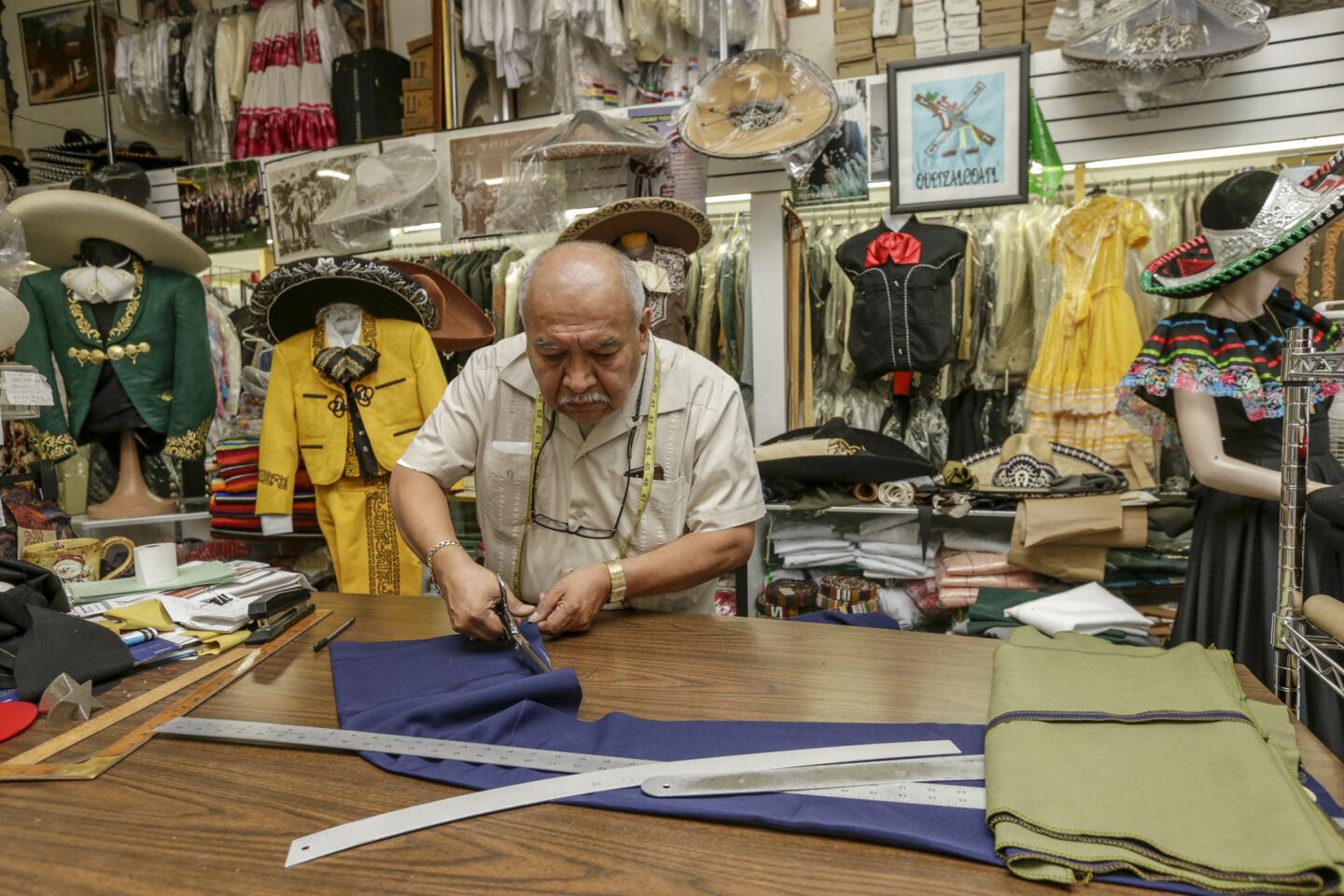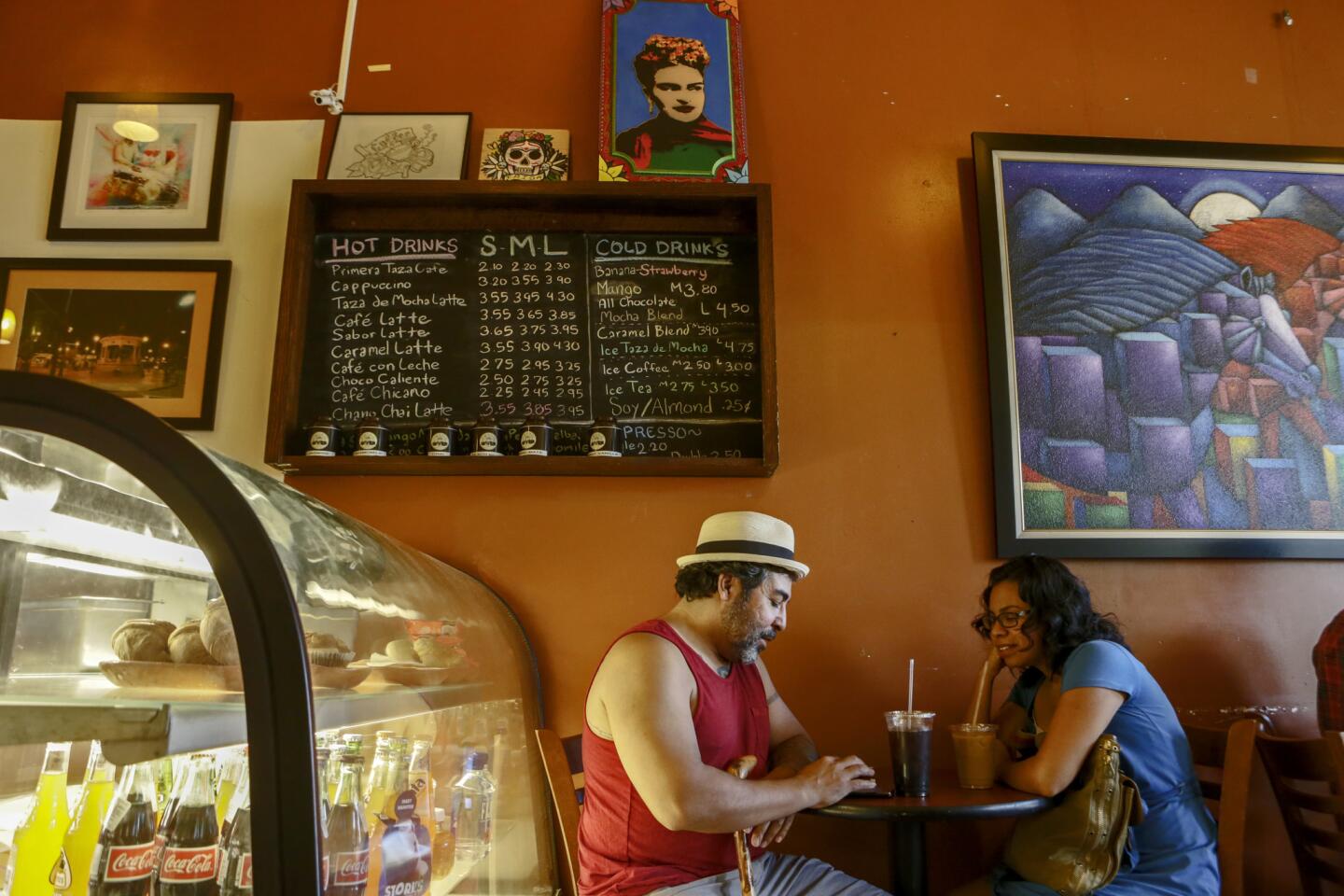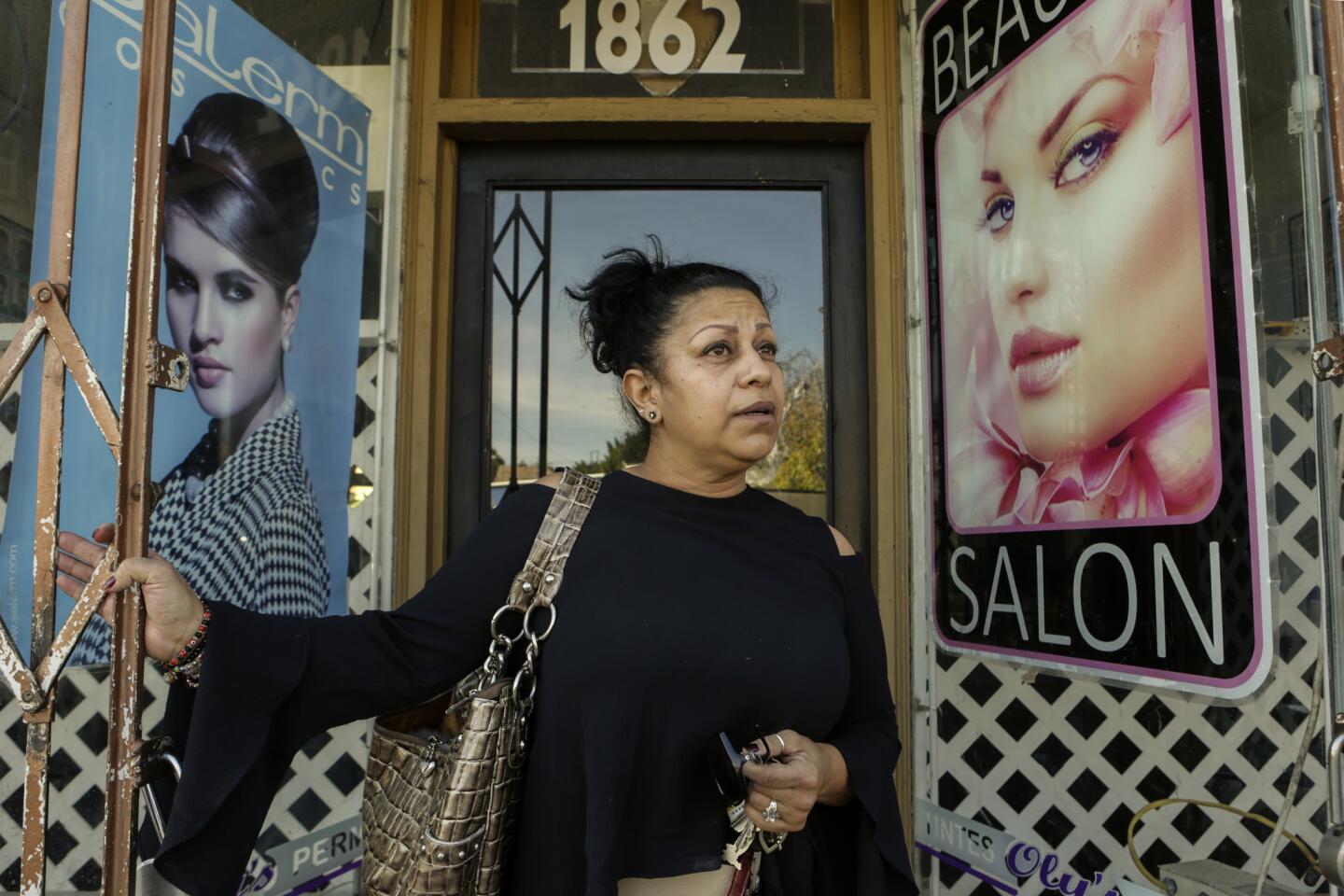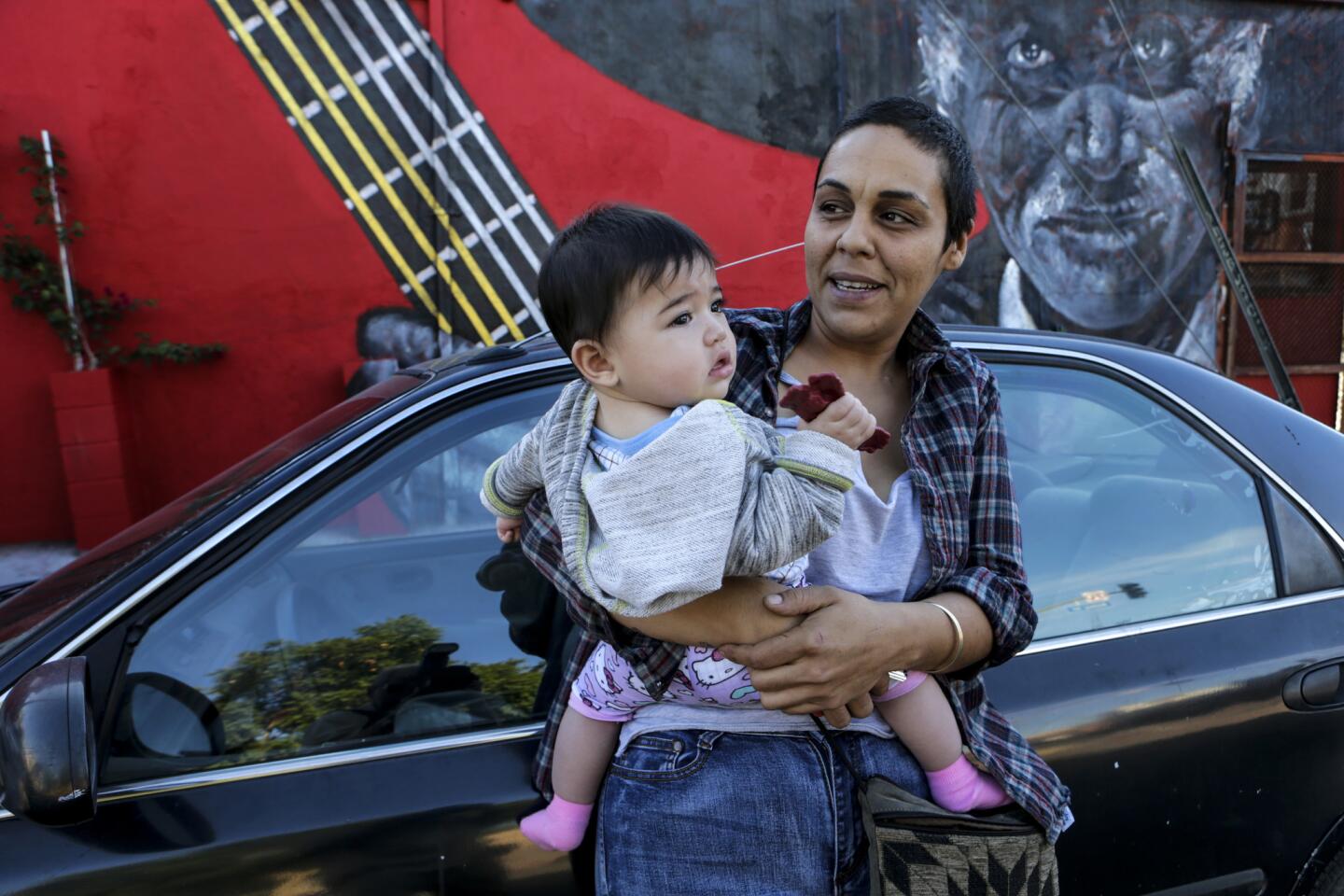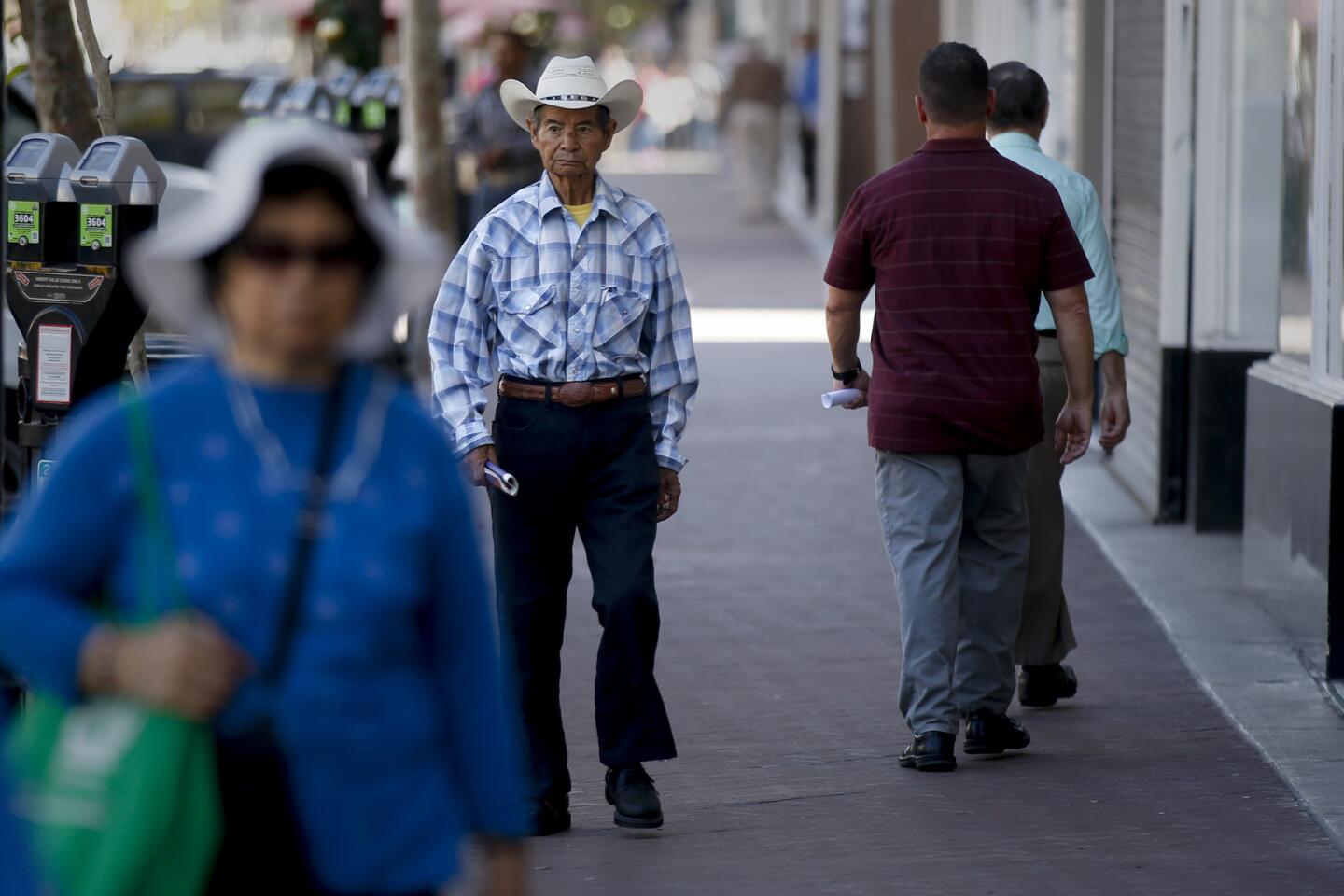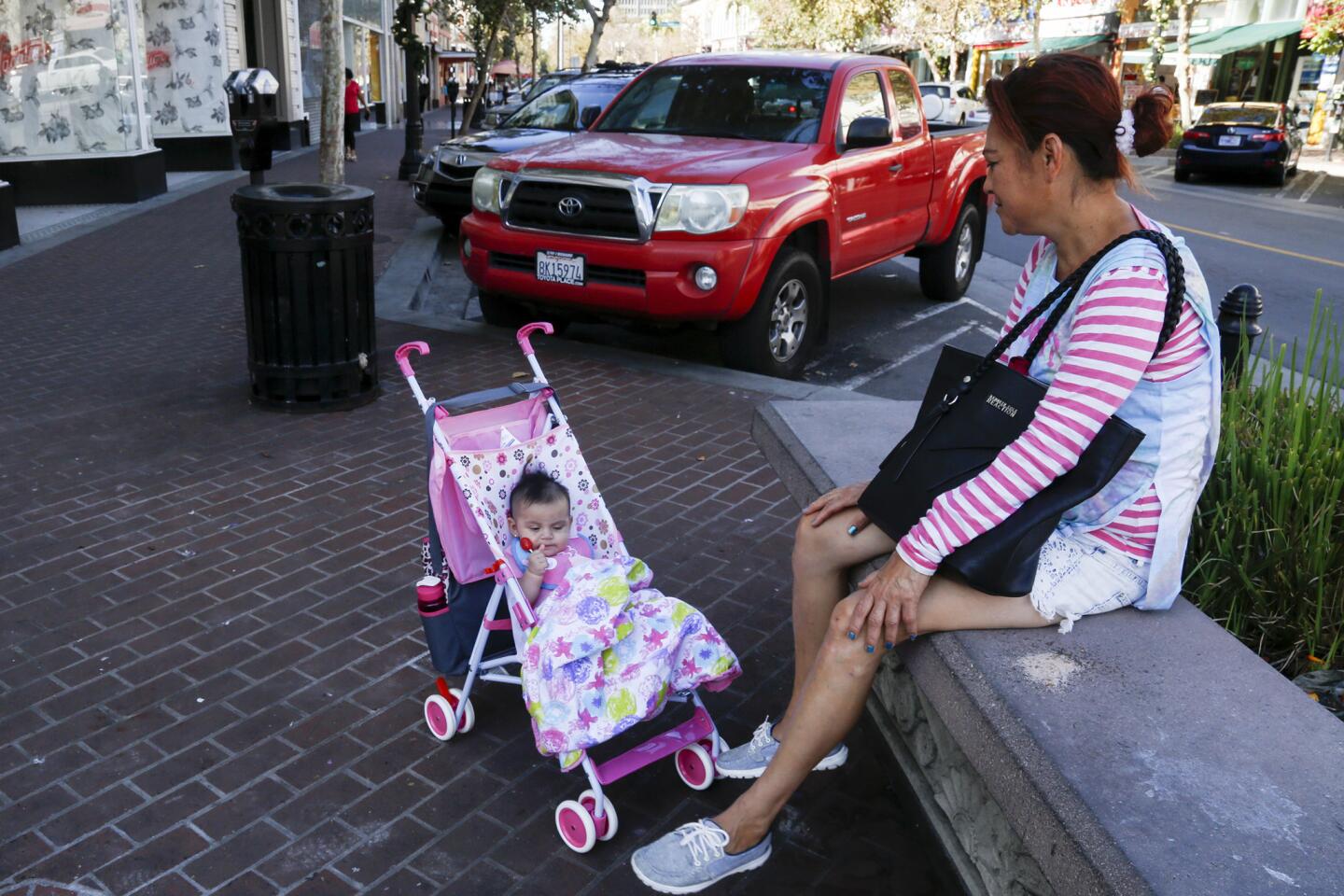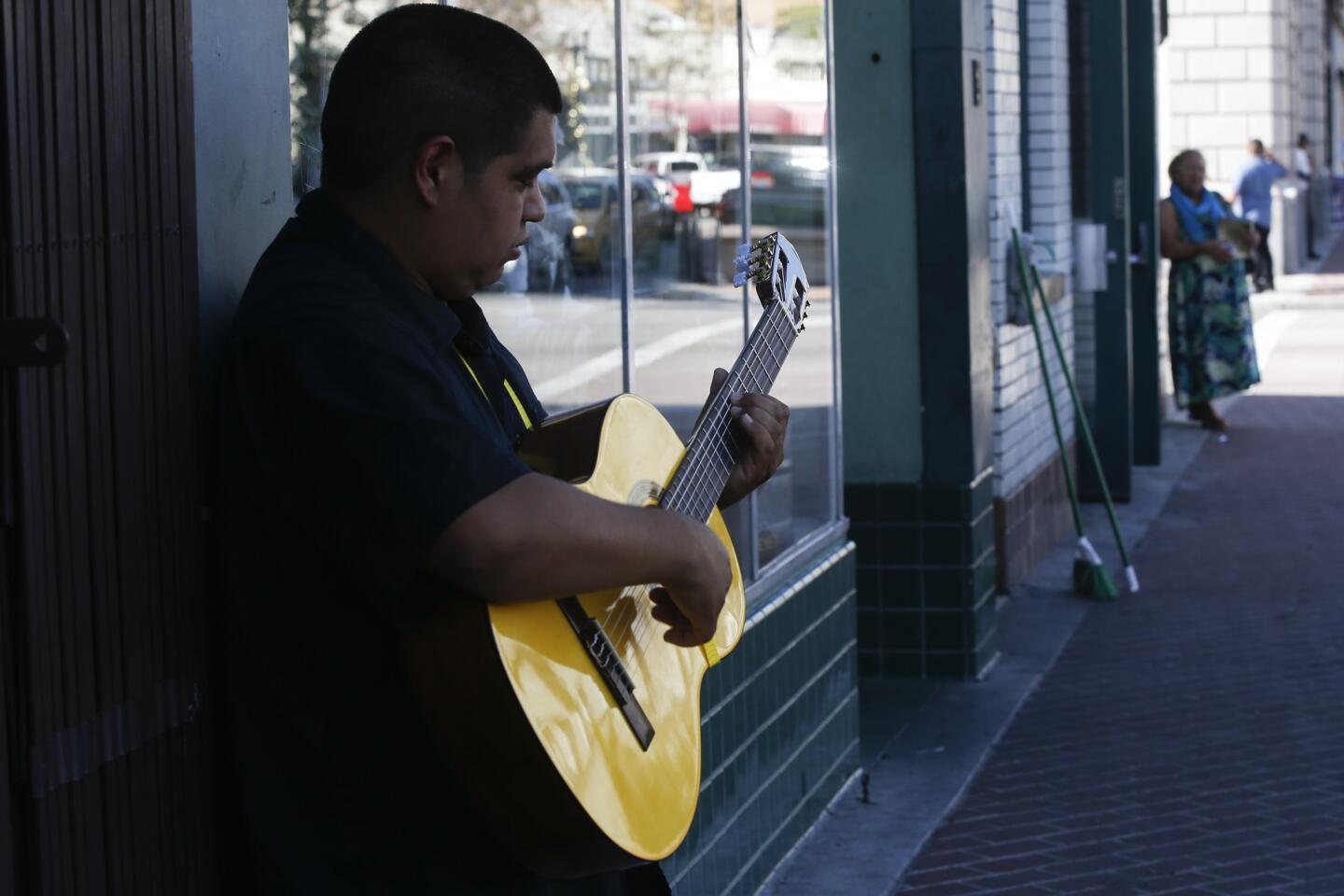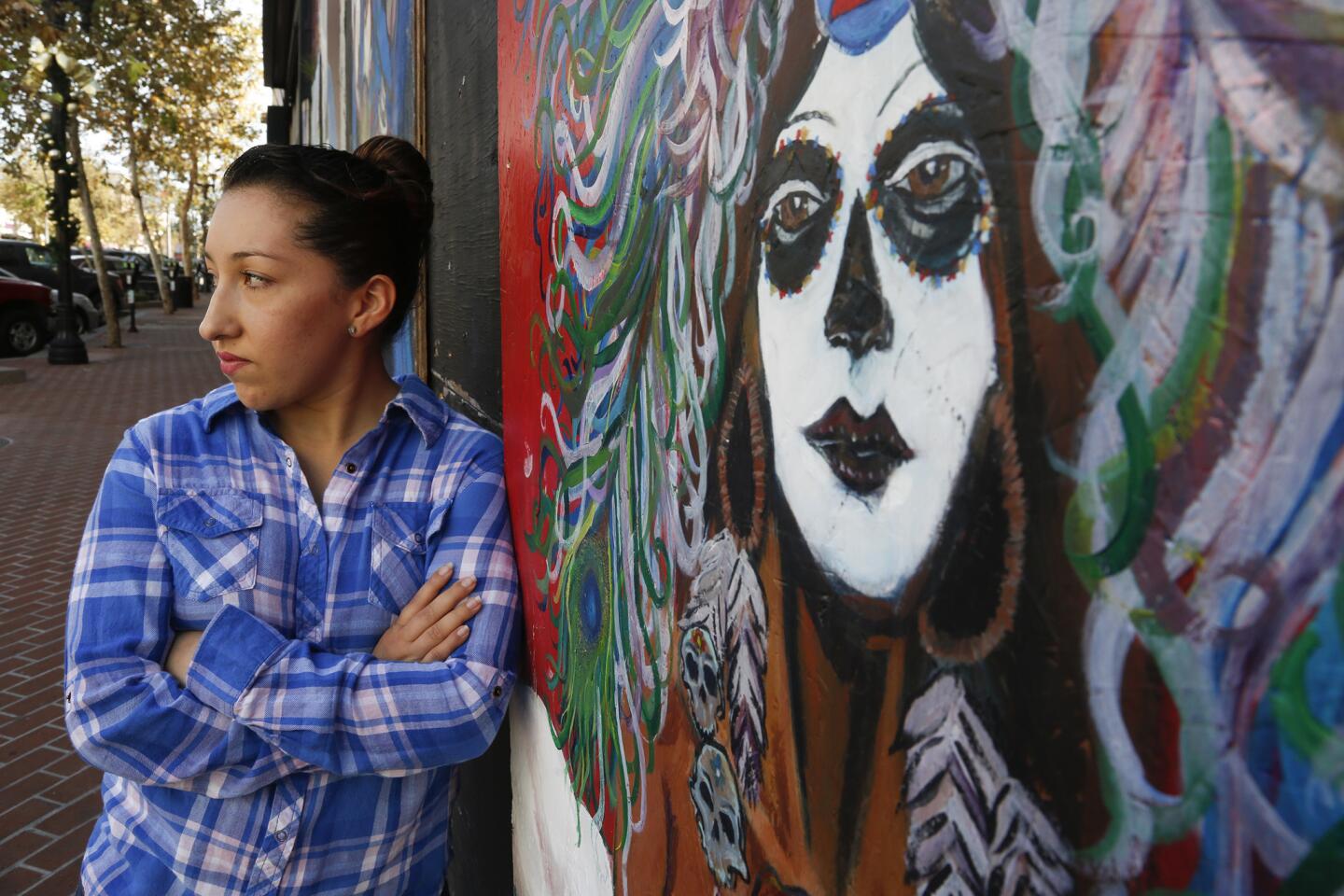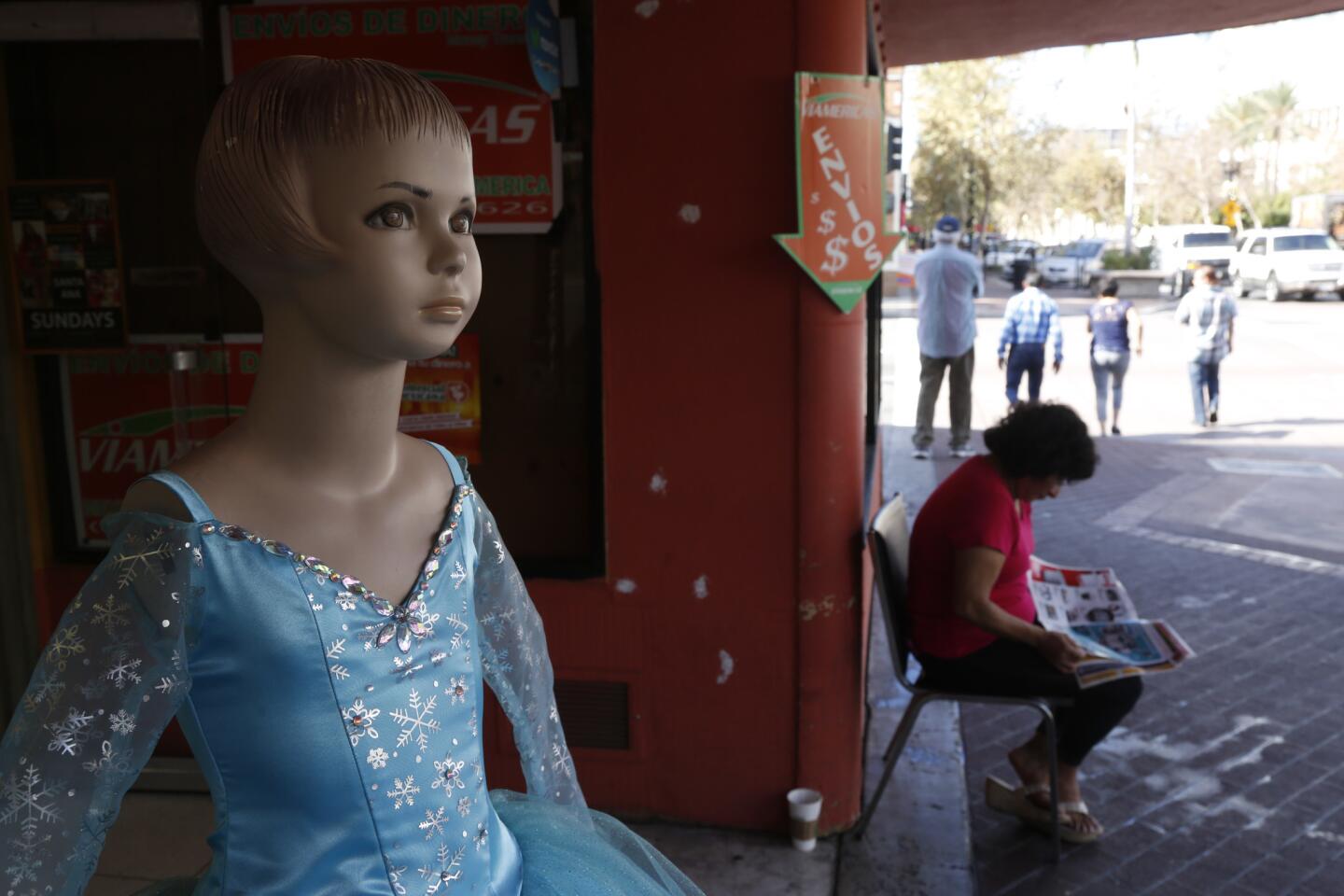For many Latinos, a historic election turns into a nightmare
- Share via
Manuel Acosta wanted to believe the time had finally come.
For three decades, many Latinos felt American politicians targeted them. There was Proposition 187, the 1994 California measure denying public services to immigrants in the country illegally. That was followed by voter-approved bans on affirmative action at state universities as well as bilingual education.
Now, Donald Trump seemed to be attacking Latinos — especially Mexican immigrants — to electrify his presidential campaign, calling them criminals, rapists and drug dealers. He promised mass deportation and a “big, beautiful wall” along the Mexican border.
America would not abide this, Acosta and many others believed. The morning of the election, polling experts predicted that Latinos, with their rising voter numbers, could be the ones to defeat Trump.

Los Angeles Times staffers visited Boyle Heights to hear Southern California residents’ take on the election of Donald Trump as the next U.S. president.
Instead, before the sun broke Wednesday morning, many found themselves, once more, grieving and shocked.
“It’s a depressing reality check,” said Acosta, a financial analyst from El Sereno. “We’re still the underdog, despite how much power and clout people assume we have.”
As the weight of the defeat sank in, many Latinos feared for loved ones who could be deported or face hurdles with residency applications. Some hit the streets in protest. Others tried to find solace in the thought that Trump might soften his stance or be limited by Congress and legislative powers.
“I hardly doubt that all the plans he has, he’ll make happen,” said George Galindo, 31. “Therefore, I’m not scared. I’m here to have a regular job like everyone else.”
But others wondered how they and their Spanish names, the color of their skin, their hometown and heritage, would be seen in Trump’s America.
For Sophia Sanchez, 31, the president-elect’s rhetoric was “confirmation that racism is still alive and well.”
Sipping coffee in Boyle Heights, Sanchez and her fiance, Mike de la Peña, 45, said they were glad those emotions are now public, rather than hidden within the country’s fabric.
Trump’s victory comes amid a surge in Latino political power in California. Many of the state’s top legislative leaders are now Latino, and they’ve pushed through an ambitious agenda to aid rather than punish immigrants.
As a result, De la Peña said he didn’t worry about backlash in California, but Sanchez was concerned about family living in Texas and Kansas.
“Who knows for people living in small towns in Idaho or North Carolina or God-knows-where, what they’re feeling and how they’re feeling about their neighbors,” De la Peña said. “Their neighbors have made a pretty clear statement about how they feel.”
Roger Salazar, a Democratic strategist who worked for the Bill Clinton administration, wondered whether news about the wave of early Latino voters might have motivated more white, working-class voters — particularly non-college-educated males.
“I think there is going to be a lot of dissecting as we sift through what is left of this election,” he said, wondering if many Latinos underestimated Trump.
Preliminary estimates showed that close to 30% of Latinos voted for Trump. That still represented a victory for Hillary Clinton among the nation’s second-largest ethnic group, but it may not have been enough given how strongly the white vote went for Trump.
“His win, I think, is really a slap in the face to women … Latinos and minorities in this country,” said Angelica Salas, executive director of the Coalition for Humane Immigrant Rights of Los Angeles. “Many have awoken to the fact that we have more work to do to be considered equal in America.”
Some Latinos were pleased to see Trump win. Everardo Rangel, who came from Tijuana in 1986, voted for the Republican candidate because he longed for change after eight years of Barack Obama. Now that the deed was done, said Rangel, as he loaded chips at a meat market in Venice, he was curious to see what Trump would do in office.
“I’m just anxious, waiting to see what will happen,” he said.
Some had too much at risk to sit idly until Inauguration Day. That included so-called Dreamers, who benefited from Obama’s Deferred Action for Childhood Arrivals program. (DACA granted temporary deportation protection to more than half a million young immigrants brought to the U.S. as children.)
Recipients of the executive action on Tuesday night flooded Facebook groups to express their fear that Trump would do away with the protection and that a system that once gave them relief would now flag them for deportation.
Karla Estrada, 25, of Chino, urged people to stay calm and strong.
“You can no longer be passive, you can no longer do nothing,” she wrote. “Our lives are at stake. All of us. We must fight together.”
Although the Latino electorate was not enough to defeat Trump, in Arizona it helped oust Maricopa County Sheriff Joe Arpaio, ending a 23-year reign that spurred lawsuits and accusations of bias against Latinos.
In Nevada, Latinos helped elect Catherine Cortez Masto, who became the state’s first Latina senator.
Many Latinos are hopeful that come 2020, their numbers will grow and have a greater effect nationwide.
Acosta, the 36-year-old financial analyst from El Sereno, is counting on younger voters.
“Once the older generation passes away, the new generation will come in and our strength will grow,” he said. “At least that’s my hope.”

For many Latinos, a historic election turns into a nightmare
Times staff writers Brittny Mejia and Nina Agrawal contributed to this report.
ALSO
Commentary: What do we tell the children?
How Donald Trump put together such a strong showing
Donald Trump sets new tone in election night speech: ‘Partnership, not conflict’
More to Read
Sign up for Essential California
The most important California stories and recommendations in your inbox every morning.
You may occasionally receive promotional content from the Los Angeles Times.
